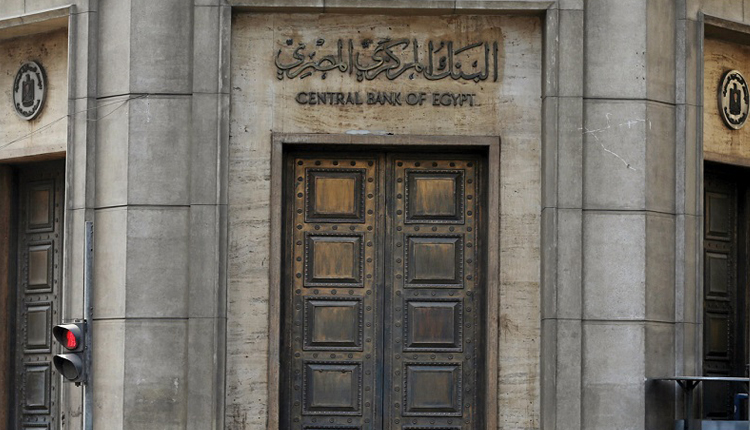Egypt will have to repay $14.7 billion this year to international creditors, including Arab countries that deposited billions of dollars in the Central Bank of Egypt to boost Cairo’s international reserves.
However, the repayments will create greater demand for the US currency in the local market, economists said.
“This demand will eventually lead to raising the exchange rate of the US currency against the Egyptian pound,” said financial economics expert Doha Abdelhamid.
The $14.7 billion that is to be repaid this year includes $8.6 billion to Saudi Arabia, the United Arab Emirates and Kuwait, the Central Bank of Egypt said. The financial obligations also include $2.8 billion to international crediting institutions and $961 million in euro and dollar bond interest.
The Egyptian pound has lost almost half of its value against the US dollar since November 2016 when the central bank liberalised its exchange rate, as part of a package of economic and monetary reforms that aimed at boosting investors’ confidence and eradicating the parallel foreign currency market.
The rise in the exchange rate of the dollar to almost 18 pounds has had a strong toll on the livelihoods of ordinary Egyptians, particularly because most Egyptian imports are paid for in the US currency. It also raised Egypt’s import bill and obliged Cairo to set aside more money for foreign debt service.
Oil-rich Arab countries lent Cairo approximately $23 billion from 2013-15, a period of severe economic, political and security problems in Egypt. Egypt also issued billions of dollars in euro and dollar bonds to bankroll its development, boost central bank international reserves and feed its growing population.
Abdelhamid said was always keen to preserve its financial credibility by honouring its international financial obligations but this will apparently be part of an effort with far-reaching effects on the conditions of the local market and commodity prices in this market.
The exchange rate of the US dollar is on the decline against the Egyptian pound, losing almost 2% of its value against the pound in late January.
The drop in the value of the dollar came a short time after Central Bank Governor Tarek Amer confirmed in an interview with Bloomberg News that the foreign exchange market is expected to fluctuate.
Economists attribute the decline in the value of the US currency to the cancellation of a foreign currency repatriation mechanism that allowed foreign investors to transfer money outside Egypt. The mechanism led to the flight of around $12 billion in 2018.
“We will witness more volatility in the currency after the repatriation mechanism was shut down as investors will now have to go through the interbank market,” Amer told Bloomberg News, just weeks after the central bank repatriation mechanism was ended in December.
However, improving financial indicators will reduce potential effects from the expected debt repayment on the national economy, the balance of payments and commodity price, economists said.
“This is why there will be little effects on the economy from the repayment of this huge amount of money this year,” said MP Bassant Fahmi, a member of the parliamentary Economic Affairs Committee. “Improving financial indicators will offset possible effects from the repayment of this money.”
Improving indicators include the rise in central bank international reserves. Despite a recent drop of $2 billion, the reserves total $42.5 billion, from less than $24 billion before the liberalisation of the Egyptian pound in 2016.
The fifth tranche of a $12 billion loan from the International Monetary Fund (IMF), $2 billion, is expected to be delivered in the first half of February. This, Fahmi said, would increase Egypt’s foreign currency reserves and make Egypt more capable of honouring its international financial obligations.
Strengthening the Arab country’s financial abilities are also increasing financial inflows, including revenues from the tourism sector, which is rebounding after almost three years of stagnation.
They also include revenues from exports. In 2018, revenues from exports to foreign markets rose to $25.8 billion from $18.7 billion in 2016. Remittances from Egyptian workers in other countries rose in 2018 to $26.4 billion from $16.7 billion in 2016.
Apart from the decline in the value of imports, in general, Egypt stopped importing natural gas, with domestic production covering the daily needs of 6.2 billion cubic metres.
The production is expected to rise to 8 billion cubic metres a day during this fiscal year, which would allow Egypt to export gas to international markets.
In addition to the fifth tranche, Egypt hopes to receive the sixth and final tranche of the IMF loan, an additional $2 billion, this year.
“This will compound revenues from the tourism sector, growing revenues from the Suez Canal and the remittances of national workers in other countries,” said Fakhry Elfiky, a former assistant to the executive director of the IMF. “All these developments make for a strong financial position and reduce effects from honouring all these financial obligations.”
Source: The Arab Weekly
